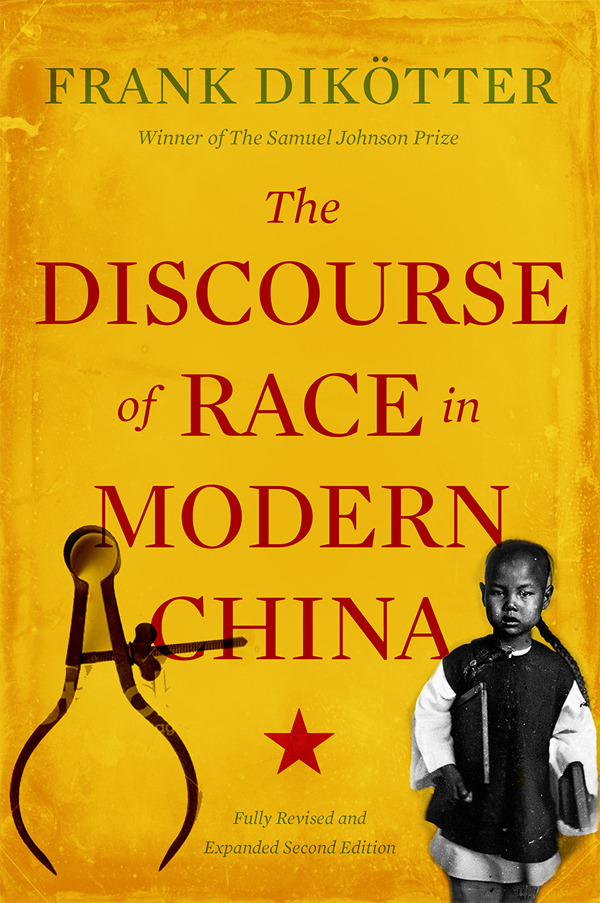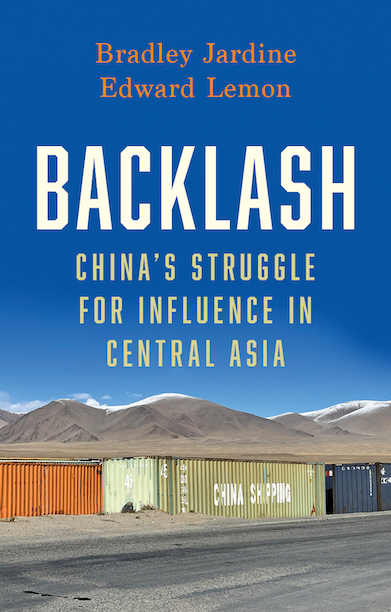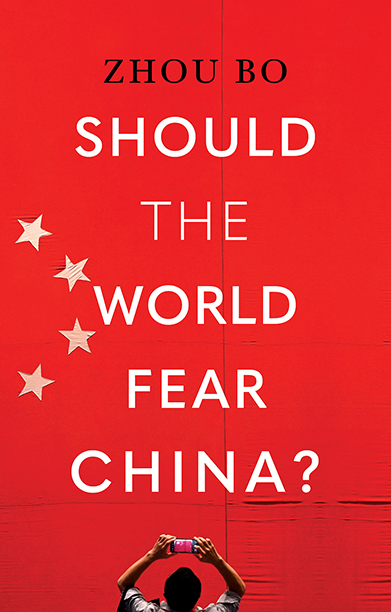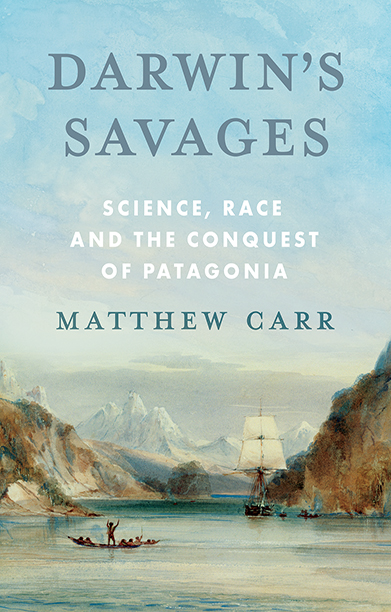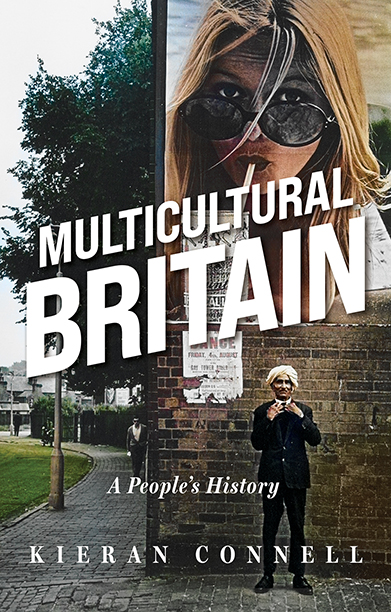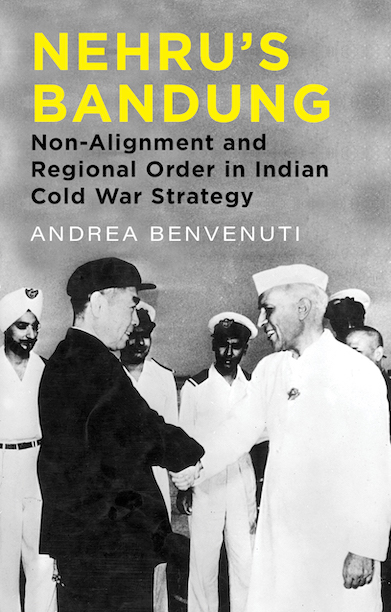The Discourse of Race in Modern China
FULLY REVISED AND UPDATED EDITION
This fully revised edition shows how and why notions of ‘race’ became so widespread in China, now updated to include the continuation of this trend into the twenty-first century.
Description
First published in 1992, The Discourse of Race in Modern China rapidly became a classic, showing for the first time on the basis of detailed evidence how and why racial categorisation became so widespread in China. After the country’s devastating defeat against Japan in 1895, leading reformers like Yan Fu, Liang Qichao and Kang Youwei turned away from the Confucian classics to seek enlightenment abroad, hoping to find the keys to wealth and power on the distant shores of Europe. Instead, they discovered the notion of ‘race’, and used new evolutionary theories from Charles Darwin and Herbert Spencer to present a universe red in tooth and claw in which ‘yellows’ competed with ‘whites’ in a deadly struggle for survival. After the fall of the empire in 1911, prominent politicians and writers in republican China continued to measure, classify and rank people from around the world according to their supposed biological features, all in the name of science. Racial thinking remains popular in the People’s Republic of China, as serologists, geneticists and anthropometrists continue to interpret human variation in terms of ‘race’. This new edition has been revised and expanded to include a new chapter taking the reader up to the twenty-first century.
Table of contents
Preface to the Revised and Expanded Edition
Preface and Acknowledgements
Chapters
1. Race as Culture: Historical Background
SECTION ONE
The barbarian in the classics
The barbarian in mythology
Environmental determinism
‘Raw’ and ‘cooked’ barbarians
Skin colour
White ash
Black coal
SECTION TWO
Anti-Buddhism
Song loyalism
Anti-Manchuism
Conclusion
2. Race as Type (1793-1895)
Demonology
Teratology
Anatomy
Geography
Typology
Intermarriage
3. Race as Lineage (1895-1903)
Racial war
Racial origins
Racial extinction
Racial classification
Racial hierarchy
Racial frontiers
Racial assimilation
‘Western influence’
Alternatives
4. Race as Nation (1903-1915)
Racial evolution
Racial preservation
Racial ancestry
Racial origins
Racial nationalism
5. Race as Species (1915-1949)
Introduction
Origins
Colour
Hair
Odour
Intelligence
Stereotypes
Hierarchy
Armageddon
6. Race as Seed (1915-1949)
Background
Expansion
Apogee
7. Race as Nationality (1949-2012)
Race and class under Mao
Race and nation since 1978
Eugenics
Popular racism
Reviews
‘In his brilliant book Dikötter explains how traditional notions about culturally inferior “barbarians” intermingled with Western forms of scientific racism to form a distinctively Chinese racial consciousness in the 20th century.’ — Forbes Magazine
‘[A] provocative … groundbreaking work’ — The New York Review of Books
‘Frank Dikötter’s luminous study should be essential reading not just for sinologists but for historians interested in the construction of symbolic universes. Dikötter’s study of the rise of Chinese racial thought also sheds much light upon the meanings of racialism in the West.’ — Roy Porter, Wellcome Institute for the History of Medicine
‘Frank Dikötter’s important pioneering work establishes that ideas and perceptions of race in the “Middle Kingdom” have been no less ethnocentric than in Europe.’ — Times Literary Supplement
‘In The Discourse of Race in Modern China Dikötter shatters conventional notions about China’s being relatively free of racism.’ — International Herald Tribune
‘Careful and dispassionate … provides a comprehensive and stimulating interpretative framework throughout, firmly grounded in attention to detail and a sensitivity to Chinese ideas and nuances of language. A major contribution in the field of modern Chinese history.’ — Asian Affairs
‘The subject is of premier importance, but it has been in effect suppressed, owing to a combination of timidity, embarrassment, and political unfashionability. But the discourse to which Dikötter refers is there, is very basic to the literature, and absolutely demands serious and dispassionate study. This is what Dikötter provides, in a work drawn along by the powerful logic of the author’s argument, and by the distinctiveness and coherence of his conceptual approach.’ — William T. Rowe, Johns Hopkins University
‘This book is a fascinating study of a topic that is both extremely important and highly sensitive: how the Chinese have viewed other ethnic groups across time. The issue of racial differences constitutes a highly masked and oblique discourse in modern China. This is the first book to analyse that shielded rhetoric directly.’ — Frederic Wakeman, University of California, Berkeley
‘Dr Dikötter offers us a pioneering study in an important field. … His book should be of interest to all who are concern about the misuse of the idea of race.’ — Michael Banton, University of Bristol
‘Anyone interested in Chinese perceptions of themselves, or in theoretical issues of race in general, should read this book. It has a wealth of detail and one can only hope that it stimulates other studies of non-Western racism.’ — Grant Evans, Far Eastern Economic Review
‘This book belongs to a very small minority of academic books on China in that it relates things worth knowing and continues, page after page, to provide intellectual stimulus.’ — W. J. F. Jenner, Australian Journal of Chinese Affairs
‘Unusually well written, succinct, to the point. … The book is poised to become a classic on its topic.’ — Flemming Christiansen, Journal of Communist Studies
‘This short, powerful, luminous book, a model of taut argument and relentless logic, draws on a formidable breadth of scholarship. Dikötter has apparently read everything in every language in every sort of publication in every relevant field, and uses it with masterly selectivity. His writing style is concise, elegant and dense, lit by flashes of dry humour.’ — Gregor Benton, SOAS Bulletin
‘While it is impressively based on a wide range of Chinese writings skilfully translated, it has entailed considerable research in the fields of anthropology, sociology, genetics and education methods. … His book is a rewarding one which will throw indirect light on many problems of interest to historians.’ — English Historical Review
‘Concise and briskly written … Frank Dikötter has written a book about a highly sensitive — indeed, potentially explosive — subject. His handling of this subject, while sacrificing nothing in the way of candor, is fair and even-handed.’ — Paul Cohen, Journal of the Social and Economic History of the Orient
‘Dikötter’s study of the discourse of race in modern China is a brilliant pioneering work of an important and neglected topic.’ — G.E.R. Lloyd, Discourse and Theory
‘A stimulating, insightful, and well-researched study of an important topic.’ — C. Montgomery Broaded, Contemporary Sociology
‘A pioneering and, in many ways, courageous work.’ — Ethnic and Racial Studies
‘Dikötter has read a great swath of material, highbrow and popular … and has distilled it intelligently into a book that broadly curious historians of medicine will find enlightening and useful.’ — Nathan Sivin, Social History of Medicine
‘Extremely well researched with an objectivity, one might say almost detached or dispassionate presentation, that is necessary for such a sensitive topic.’ — Ruth Meserve, Journal of Asian History
‘A thoughtful and original book.’ — Stephan Feuchtwang, Anthropology Today
‘The book is a highly scholarly study, documented with extreme care and reference to an enormous range of sources in a variety of languages … written in a clear and crisp style.’ — Asian Studies Review
Author(s)
Frank Dikötter is Chair Professor of Humanities at the University of Hong Kong. Before moving to Asia in 2006, he was Professor of the Modern History of China at the School of Oriental and African Studies, University of London. He has published nine books about the history of China, including two international bestsellers, Mao's Great Famine, which won the BBC Samuel Johnson Prize for Non-fiction in 2011, and The Tragedy of Liberation: A History of the Chinese Revolution, 1945-1957.
